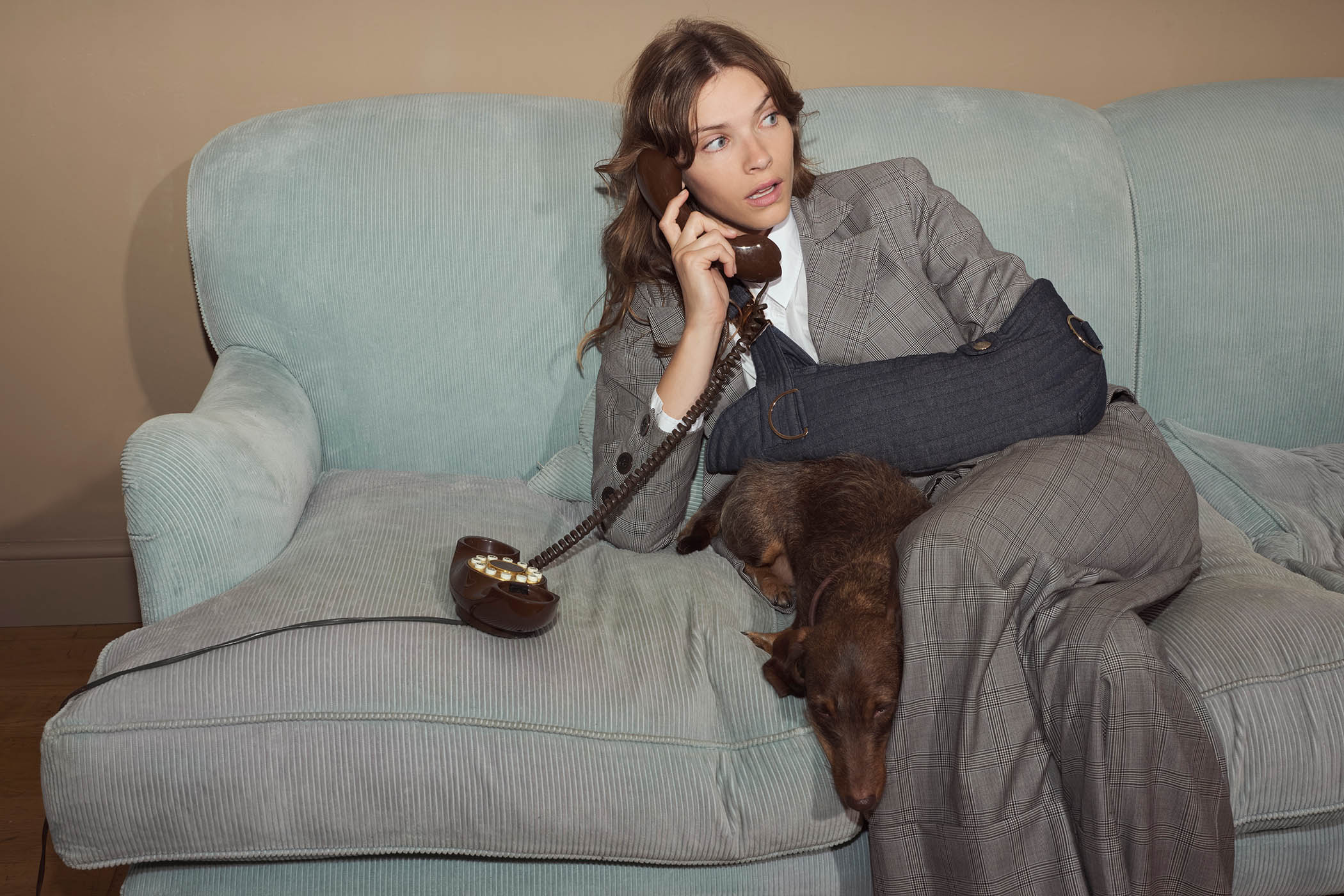In 2018, after 56 years of trading as Weight Watchers, the company changed its name to WW, which, it said, “doesn’t stand for anything”. And I guess that should have been a sign, really. A sign to those with half an eye on diet culture and its associated industries, that a sort of weariness had set in, that a change was coming.
Seven years earlier, I was at a government inquiry into body image, listening to the spokesperson for Weight Watchers give their evidence. Later, the psychotherapist Susie Orbach told me that she’d smelled the nervousness on their breath – I remember her wrinkling her nose, her description of “a sourness”. I think about that quite a lot. The sourness was guilt, she said, guilt that these people knew they were selling a lie.
There’s extensive proof that diets don’t work. We know this now. That the average person regains any weight they lose, that losing and then gaining and then losing weight again, that terrible feminine dance across decades and down generations, causes long-term damage to the metabolism.
As well of course, to our mental health – for those who want to be thinner, food becomes an object of salted terror, a place of guilt and shame and confusion.
What Weight Watchers did so successfully for so many years was reframe and re-portion food in order to sand down the fear so many women felt – it’s not pudding (evil, monstrous), it’s points (a game!)
According to The Wall Street Journal last month, Weight Watchers was struggling with a reported $1.4bn debt and preparing to file bankruptcy. It was more than just a business story, it was a story about what happens when dieting goes out of fashion, but being thin remains more important than ever.
Of course, sorry, we no longer say the word “thin”. And we don’t stop eating, like we did in the old days. Instead we “fast intermittently” for our “health”, our “longevity”. Today, we don’t say we’re trying to lose weight, we say we want to “get strong”, or sometimes get “lean”. We don’t invest in diets, we invest in wellness, and apps, and more recently, jabs, with around 500,000 people in the UK right now on weight-loss drugs, and demand growing by up to 40% each month.
In 2020, 61% of adults said they felt “negative or very negative” about their body image “most of the time”, along with 66% of children.
Related articles:
The patterns, of course, whether you call it getting thin or getting healthy are largely the same. First there’s a hungry private struggle to control one’s weight, something that (despite the claims of the businesses selling you a cure for fatness) depends almost entirely on systemic issues rather than individual choices. And then there are waves and waves of judgment, from both outside and in.
Though Weight Watchers had its problems, one positive was that its problems were performed in a group. It seems crazy to think about that now, to remember how women would gather in church halls once a week to lose weight. That they would cheer each other on. That there were shared spaces marked for women’s care.
Newsletters
Choose the newsletters you want to receive
View more
For information about how The Observer protects your data, read our Privacy Policy
Every new round of diet culture, from pill to surgery to jab, is a reminder we are yet to work out how to find peace with fatness
Every new round of diet culture, from pill to surgery to jab, is a reminder we are yet to work out how to find peace with fatness
Especially in these times, when the project of weight loss is shameful and carried out in private, the very language of the task taboo, unable to be said out loud for fear of the dieter appearing, at best out of touch, at worst anti-feminist.
And, now that weight-loss jabs have arrived, the act of remaining fat brings another kind of unwelcome pressure. Every new round of diet culture, every solution to the problem of hunger or a body, from pill to diet to surgery to jab, is a reminder that we are yet to work out how to find peace with fatness, how to afford it even a flake, a crumb, of moral neutrality.
Said the great Aubrey Gordon on an episode of the Maintenance Phase podcast, discussing the stigma that people who stay fat in a time of Ozempic will face, “I want people to understand, the stakes of this as a fat person are: ‘I feel like I don’t belong in the world.’ When people talk about how great it’s going to be when I’m not around, that’s not me being too sensitive, that’s not fat people taking it too hard, that’s you saying plainly, ‘Everything will better when you’re gone.’”
In the wake of Weight Watchers, a new wave of diet culture with its softer language and sharper jabs might well change the course of public health.
But while the culture is seeming to evolve as behemoths go bankrupt, there’s no sign the attitude towards fatness is evolving at the same pace, whether in society as a whole, or in ourselves, our own kitchens, or bedrooms, or bodies.
In the 1980s, we ate cabbage soup to get thin, in 2025, we inject Semaglutide – the weight-loss methods and choices may change, but it’s the judgment attached to these choices that keeps diet culture comfortably ticking, and profitable, and dangerous.
Weight Watchers stopped standing for anything a long time ago, but that doesn’t mean the diet industry is on its knees.
And another thing… Big little reads and a riotous romcom
Short haul
This week I have been enjoying a lot of very little, very chic books. The new Penguin Archive is made up of 90 short classics, including writers like Virginia Woolf and George Orwell, alongside Argentinian surrealist novelist César Aira – as well as works that have never before been published in the UK, such as Audre Lorde’s Coal.
Smarten up
Hoxton Mini Press’s new Pocket Primers cover subjects that you sort of get, but might quietly like to understand better. Fake News by Chris Stokel-Walker is a pithy introduction to rumour, conspiracy and misinformation, and looks quite jazzy, too.
Dare diary
The tiniest and chic-est of all: Hanuman Editions is launching a Kickstarter campaign to support its reissue of the late Bob Flanagan’s Fuck Journal, a chronicle a year of his liaisons with his romantic and artistic partner Sheree Rose. ‘For all its provocations,’ the publisher writes, it’s ‘a melodic, transfixingly articulated work of diurnal union through, and amid, pain and desire’.
Comedy of errors
I love Bowen Yang, so I’m looking forward to seeing The Wedding Banquet in which he plays a man whose boyfriend’s visa is expiring. He makes a proposal to his lesbian best friend: a green-card marriage in exchange for the cash for her IVF. Which would be fine, if it not for the arrival of his boyfriend’s grandmother to organise the wedding. Fun.
Photograph by Getty Images



